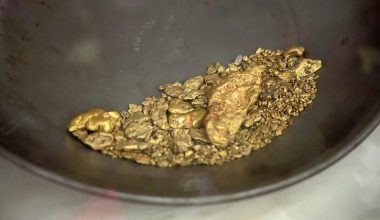Silver is a precious metal that has been used by mankind since ancient times due to its unique characteristics, such as its high electrical and thermal conductivity, its resistance to corrosion and its malleability.
Today, silver is a fundamental element in many different industries, from electronics to medicine.
In this article, we will explore the various uses of silver in industry and how its versatility and unique properties make it an indispensable material in the manufacture of products and devices we use in our daily lives.
Find out why silver is a key element in industrial production
Silver is a precious metal that has been used by man since ancient times. However, beyond its aesthetic and monetary value, silver is a key element in industrial production.
One of the main properties of silver is its high electrical and thermal conductivity. For this reason, it is used in the manufacture of electronic components, such as in the production of solar cells and in the manufacture of batteries.
In addition, silver has antibacterial properties and is used in the production of medical products, such as bandages and dressings, to prevent infection. It is also used in the production of mirrors and in the manufacture of jewellery and cookware.
In the production of photographs, silver is used in photographic emulsion to produce high quality images. It is also used in the production of motion picture film.
Despite its importance in industrial production, silver is a limited resource and its extraction has a significant environmental impact. It is important to consider sustainable and environmentally friendly alternatives in industrial production.
In conclusion, silver is a key element in industrial production due to its unique properties and diverse applications.
Silver’s essential role in electronic technology: discover how it is used in your devices
Silver is a metal with unique properties that make it essential in modern electronic technology. Although it is often used in small quantities, its role is fundamental in some key components of our electronic devices.
One of the most common applications of silver in electronics is in electrical contacts. Silver is excellent at conducting electricity and is resistant to corrosion, making it ideal for contacts in electronic circuits.
Another way silver is used in electronics technology is in the production of touch screens. Silver is used to create transparent and conductive electrodes on the surface of the screen, which allows the touch screen to function.
In addition, silver is used in the production of batteries, especially in silver oxide batteries and silver-zinc batteries. These batteries are known for their high energy density and long life.
Finally, silver is also used in the production of high-frequency electronic components. Silver is excellent at conducting high-frequency signals and is used in the manufacture of antennas and other high-speed communication components.
In short, silver plays an essential role in modern electronic technology. From electrical contacts to touch screens to batteries, silver is present in many of the key components of our electronic devices.
As technology continues to advance, it is likely that silver will continue to be a valuable material in electronics. Silver is a noble metal, which means it does not oxidise or corrode easily, making it ideal for use in electronic devices. In addition, silver is a highly conductive metal, making it essential for the production of many key electronic components.
Discover the many applications of silver in industry and everyday life.
Silver is a precious metal that has multiple applications in both industry and everyday life. In industry, it is mainly used in the manufacture of jewellery, decorative objects and kitchen utensils. It is also used in the production of photographic paper and in the electronics industry for the manufacture of integrated circuits and solar cells.
In everyday life, silver is used in the manufacture of coins and kitchen utensils. It is also used in medicine as an antibacterial agent to treat wounds and burns. In food, it is used as a preservative to prolong the shelf life of food.
Another interesting application of silver is in water purification. Silver is used to remove bacteria and other harmful organisms from water, making it an effective and economical alternative to conventional water purification systems.
In short, silver has a wide variety of applications in industry and everyday life. Its versatility and unique properties make it a precious and valuable metal for our society.

